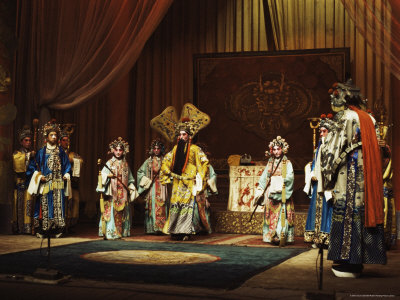From a paper by John Sloboda (pdf file):
I completely agree, and think that the revolution in the resurgence of classical music must come from the grassroots. Whether you just plain like classical music, or think it is healthy for you and your family, or whether you want the cognitive development that learning to play classical music provides, it is we, the consumers, and our families, who must demand at a community level for the arts to be provided for our children. In addition, we have to teach the younger generation how to behave at classical music performances and how to listen to classical music. If our schools won’t do it, it’s time to track down sympathetic music teachers or musicians, and perhaps trade in some other extracurricular activities for something that will pay dividends throughout the lives of everyone connected with classical music. It is only this way that we will show the producers what we expect.The traditions and forms of the academy are, despite what some apologists claim, inaccessible to most people. Their inaccessibility is of two sorts. First, they do not reflect to most people the values and identities that they bring to music. Music of the academy is seen to be about class privilege and maintenance of a cultural status quo in which an elite minority dictate to the majority what constitutes good music.
Second, the core exemplars of the forms of the academy (such as concertos and symphonies) demand such a level of individual and corporate proficiency and resource to execute that they have almost no points of contact with the levels of music making that still survive in our culture (e.g. the karaoke bar). If elite music neither has resonances with one’s own cultural identity, nor appears to be potentially learnable, then it hardly encourages mass participation.
It is, of course, encouraging when symphony orchestras go into schools, or when sympathetic school music teachers take an interest in students’ love of pop. But if the academy, whether represented in schools or symphony orchestras, carries within its very structures and discourses the seeds of the problems I have identified, then the solution will not lie in minimal reforms within the academy but in the creation of new cultural and folk institutions. We need living and socially relevant forms to replace the church choir and the village brass band. Recent pleas by major figures in classical music for the government to reverse cuts in school instrumental provision may have come too late, if the social institutions that support music making outside the academy are no longer there.
And we need better teachers, who, rather than foster competition, encourage a spirit of cooperation and working together, as seen in El Sistema. El Sistema’s method works, and young people are energized and excited about classical music in Venezuela. So find those teachers (I promise you they are out there), and enlist them in the kind of change that you want to see.
